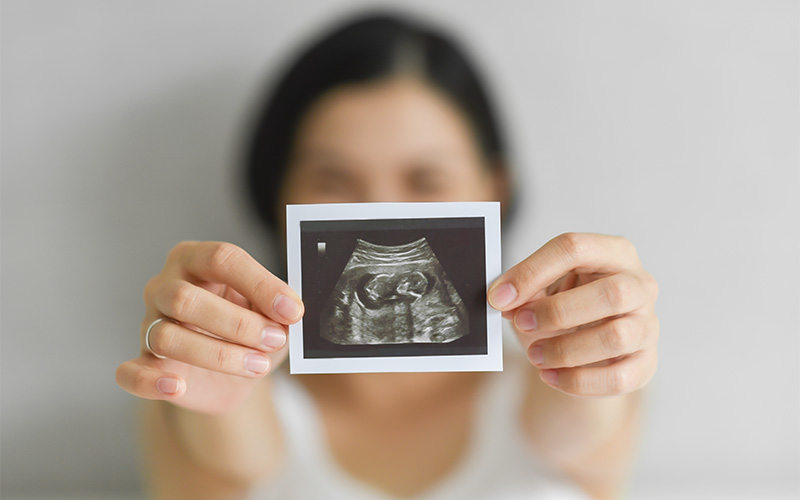AFA's Upcoming "Priceless Pennies" Honors Children of Holocaust
Sign up for a six month free
trial of The Stand Magazine!
Today, Thursday, January 23, 2020, marks the 75th anniversary of the liberation of Auschwitz-Birkenau, the most notorious of the Holocaust death camps.
Appropriately, dignitaries from around the world gathered today at Yad Vashem in Jerusalem, Israel, at the Fifth World Holocaust Forum. This year’s forum was the largest diplomatic event in Israel’s history.
Hosted by World Holocaust Forum Foundation, Yad Vashem, and President of the State of Israel, H.E. Mr. Reuven Rivlin, the forum was titled “Remembering the Holocaust, Fighting Antisemitism.”
Presidents from Russia, France, Germany, Italy, and Austria attended the event. United States Vice President Mike Pence and Prince Charles of Great Britain were present as well. In fact, more than 45 international leaders participated in this year’s forum,
Dr. Moshe Kantor, president of World Holocaust Forum Foundation, explained the exponential growth behind the 2020 forum:
“This event is especially important because as the Holocaust recedes further into the past, some of its memory is being forgotten and its lessons are no longer being learned….The World Holocaust Forum Foundation is uniquely positioned to be able to provide an opportunity for our leaders to turn the knowledge and awareness of the Holocaust into action in a collaborative effort to eradicate antisemitism and all other forms of hatred.”
Turning “knowledge and awareness of the Holocaust into action” has taken on a whole new meaning for me this year.
As a Christian, I was taught to love, reverence and pray for the land of Israel and its people. As a Language Arts teacher, I spent two decades sharing Holocaust literature, and my students always appreciated learning about World War II, especially when studying children of the Holocaust.
So, I felt pretty good about my “knowledge and awareness of the Holocaust.” I truly believed I had done my part to put my “knowledge and awareness of the Holocaust into action.”
God’s still voice
Then, I had an absolutely life-changing, paradigm-shifting, personal experience this past summer.
It began on June 27, 2019, when Diane and Ken McNeil visited American Family Association (AFA) and spoke during staff devotion time. Then, I interviewed Diane about her work with Unknown Child Foundation for a feature story in AFA Journal, highlighting plans for an Unknown Child Museum honoring the 1.5 million children murdered during the Holocaust.
Diane shared how Susan Powell and Melissa Swartz, middle school teachers from Horn Lake, Mississippi, created The Pennies Project. Over four years, their students collected one penny for each Jewish child killed in the Holocaust. Unknown Child was formed in the process.
To learn more about the foundation’s plans for a new children’s museum, I scheduled a visit to Desoto County Museum in Hernando, Mississippi, which currently houses The Pennies Project.
I told another children’s author about this upcoming visit and said, “You should write a story about Unknown Child and children of the Holocaust.”
I got no response from this writer, but I did hear that quiet, still Voice speak to me, “Maybe you should write this story, Joy.”
I laughed nervously and immediately concocted a mental list of excuses:
- I am not a good enough writer to write that kind of story.
- There are already so many great books about the Holocaust.
- I am a Christian. How can I write such a sacred story?
- I do not have the time or background to write this type of project.
- What aspect could I possibly write about that has not already been covered?
- Again, I am not a good enough writer.
But His Voice can be so persistent. So, I searched online about children of the Holocaust. One of the first images that popped up was a picture of two little girls, Rose and Odette Aboulafia, beautiful, dark-haired, dark-eyed French sisters murdered at Auschwitz in 1944.
Looking through more photos of children murdered in the Holocaust, I saw stunningly gorgeous toddlers, somber-eyed teens, and pudgy babies, each full of life and promise. But I kept returning to Rose and Odette; their faces haunted me. I finally printed their photograph, putting it in my purse.
I shared the picture with my 14-year-old granddaughter Emma. I told her I believed God spoke to my heart to write about the sisters. When I had exhausted every excuse on my list, Emma grew very quiet.
She solemnly said, “But, Yaya, if God told you to write this story, you have to do it.”
I sighed and crammed the crumpled picture back in my purse, along with Emma’s admonition.
A week later, my sister and I visited DeSoto County Museum. We were guided through the Unknown Child exhibit by Diane McNeil, museum director Robert Long, architect Doug Thornton, and teacher Susan Powell.
Two names on a soundtrack
We were chatting after the tour when Susan Powell realized they had forgotten to include the museum’s soundtrack in our tour. She described it as a solemn recitation of over 250 names of the 1.5 million children killed in the Holocaust.
Doug Thornton volunteered to go turn on the soundtrack, but they agreed the powerful impact of hearing name after name read aloud during the tour would now be a moot point. Instead, he decided to get the tiny recorder and let us hear a short sample.
As we continued chatting, I watched Doug Thornton in the outer hallway, having trouble with the recording device. Visibly frustrated, he kept unsuccessfully trying to get it to play.
Then, just as he stepped into the exhibit, the somber soundtrack began: “Rose Aboulafia, 1932 to 1944; Odette Aboulafia, 1936-1944.”
I screamed, “Stop! Stop! Stop!”
Everyone looked at me like I was crazy. I fumbled in my purse to find and share the photo of the Aboulafia sisters that had haunted me for weeks.
We all stood in shock and amazement. Out of 1.5 million children murdered in the Holocaust, Rose and Odette were the first (and only) names I heard on the recorder that day.
How is that possible?
If Susan Powell had not remembered the missing soundtrack, if the soundtrack had been playing correctly in its ongoing cycle, or if Doug Thornton had managed to turn the recording on in the hallway, I would have missed their names. Mere seconds either way would have made the difference.
But I heard two names out of 1.5 million, and those were the very names of the girls in the photograph I carried with me – Rose and Odette Aboulafia.
I am still awed by that moment. And to be honest, I have been humbled by this entire experience, but I cannot let go of these precious girls. Rose and Odette have captured my heart.
They also captured the hearts of leaders at American Family Association. So much so, that AFA has partnered with Unknown Child Foundation to create Priceless Pennies, a brand-new series of youth-oriented novels about children of the Holocaust. And I am honored to announce that I am currently writing Rose and Odette, the tentative title for the very first book in this new series.
So, today’s commemoration of the 75th anniversary of the liberation of Auschwitz-Birkenau is very special to me. It reminds me of how important and priceless every life is to God. In fact, He loved Rose and Odette so much that He is allowing me to tell their story now, 76 years after their murders. They were not insignificant souls, cast aside and forgotten like a worthless penny.
Yes, God knows Rose and Odette, and each of the 1.5 million children of the Holocaust by name. They are priceless pennies, and it is our responsibility to never forget.
For as Corrie ten Boom once said, “…such memories are the key not to the past, but to the future. I know that the experiences of our lives, when we let God use them, become the mysterious and perfect preparation for the work He will give us to do.”
So, later this year, be on the lookout for the release of Rose and Odette: Book 1 of Priceless Pennies.

Sign up for a free six-month trial of
The Stand Magazine!
Sign up for free to receive notable blogs delivered to your email weekly.



















